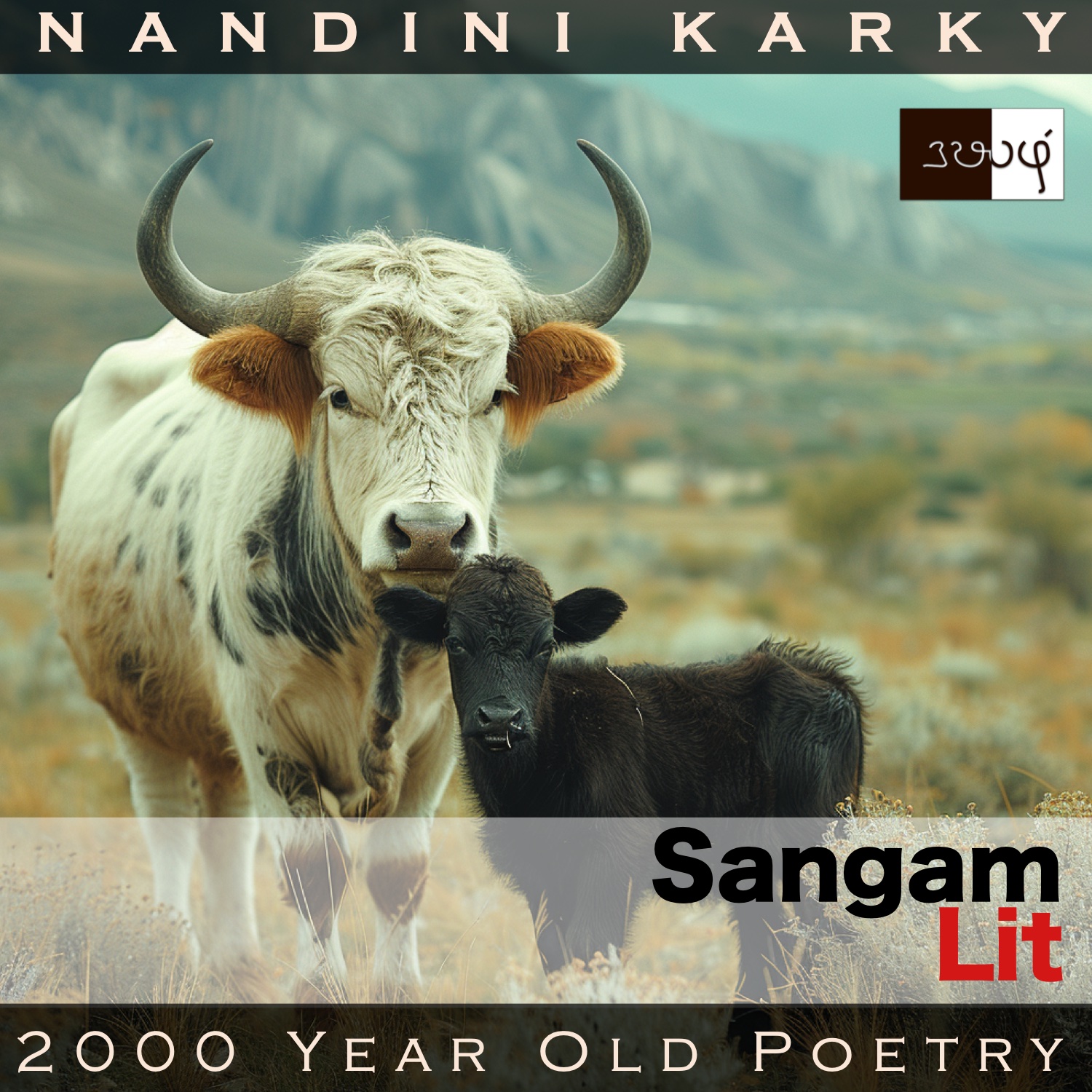Podcast: Play in new window | Download
Subscribe: Apple Podcasts | Spotify | Amazon Music | Android | iHeartRadio | Email | TuneIn | RSS | More
In this episode, we perceive compassion both in the wild and in the home, as portrayed in Sangam Literary work, Puranaanooru 323, penned by an anonymous poet. The verse is situated in the category of ‘Vaagai Thinai’ or ‘Victory’ and talks about the unfailing courage of a leader.

புலிப்பாற் பட்ட ஆமான் குழவிக்குச்
சினம் கழி மூதாக் கன்று மடுத்து ஊட்டும்
கா … … … … ….. ….. …… …… ….. க்கு
உள்ளியது சுரக்கும் ஓம்பா ஈகை,
வெள் வேல் ஆவம்ஆயின், ஒள் வாள்
கறையடி யானைக்கு அல்லது
உறை கழிப்பு அறியா, வேலோன் ஊரே.
This is one of those verses with many missing lines and words. However, considering the series of songs we are dealing with, we can understand the core theme. The poet’s words can be translated as follows:
“Accepting the calf of a wild oxen without any dislike, the aged cow allows it to suckle milk… He has an unceasing charity that showers whatever is sought. In the midst of a battle of radiant spears, other than to slay elephants with feet as huge as pounding stones, he never removes his shining sword from its scabbard. This is the town of that great one with a spear!”
Let’s explore the nuances. The poet starts by bringing before our eyes a scene involving animals, talking about the considerate way with which a mature cow allows the young one of a wild cow, which was killed by a tiger, to suckle at its udders. The nuanced element in this statement is that disregarding the implicit truth that animals want to take care of only their young ones and are hostile to those of other animals, here is a mother suckling another’s child. Now, if that cow were young, it would most probably not have the maturity to see beyond its own young. But here, the age of this cow is stressed, giving certainty to the possibility of this event.
Returning to the verse, after some missing lines which could have held even more fascinating details, the focus turns on the protagonist of this verse, describing him as someone who has the limitless generosity to give whatever his supplicants seek. Then, the poet concludes with the enigmatic words that this man wielding a spear never takes his sword out of its cover unless he’s going to fell a huge elephant with feet as big as a huge pounding stone. By these words, the poet implies that if the man takes out his spear, then an elephant is sure to fall, stressing on the fact that this man’s aim never misses. Beyond these elements of macho courage, what’s fascinating here is how even in a verse, which has lost a lot to time, we are able to witness a moment of timeless compassion in the scene of that cow suckling another’s young. Truly, an inspiration for us, the descendants of the twenty-first century to see the world not as ‘us’ and ‘them’ but as one.




Share your thoughts...